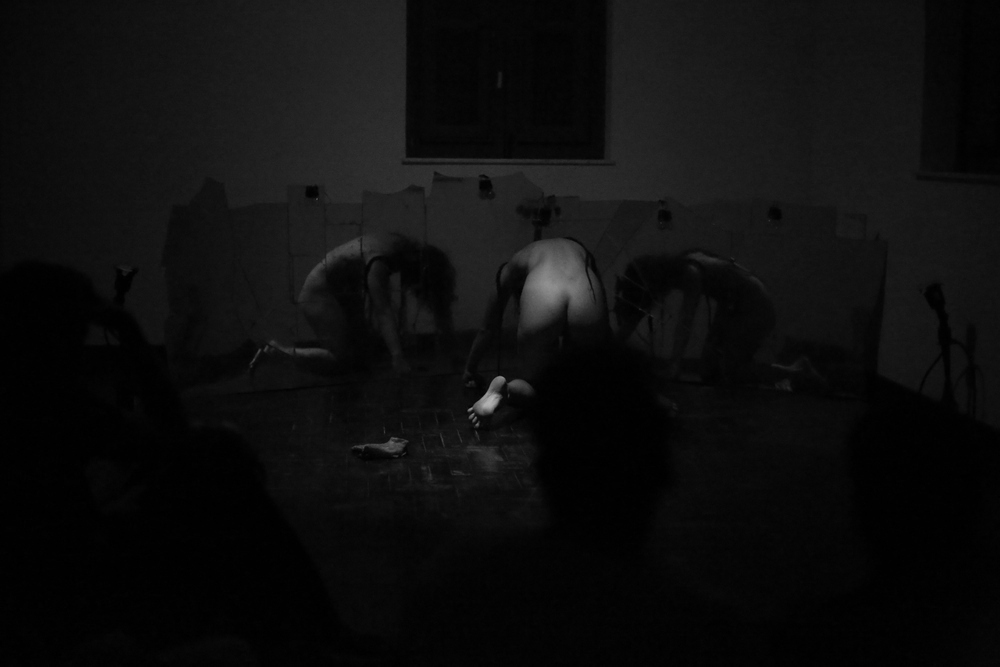
DOBRA - AN ORIGAMI DANCE
first performed on January 05, 2020
Casa Preta - cultural independent house
performed once in 2020
ANA BRANDÃO
Provocateurs: João Rafael Neto e Thiago Cohen; Design and Light: Naiara Rezende
Salvador & São Paulo, Brazil.
339534185a339534185n339534185a339534185b339534185e339534185a339534185t339534185r339534185i339534185z339534185h339534185e339534185n339534185r339534185i339534185q339534185u339534185e339534185s339534185@339534185g339534185m339534185a339534185i339534185l339534185.339534185c339534185o339534185m
anabeatrizhenrique.wixsite.com/anabrandao/blank
DOBRA - AN ORIGAMI DANCE
ANA BRANDÃO
“Dobra” is a dystopian dance solo with exaggerations and recesses. Fold many times. The body, space, normality. Become many, labyrinthine, multiple. Fold the winds, the joints, the voices, the feelings. An exercise in looking: being complex. With speed go through denunciations, transformations, stories, pains, laughter, and ironies. Grotesquely cute.
“Dobra” is a dance solo with six scenes, spread over the space of a house, building a dance-walk for the spectators. The solo is inspired by the idea of folding and unfolding, and is a dance intersected with the crossings of me, a cisgender woman’s body to rub, repertorize and turn more complex the natural, but so cultural, archetypes. A work that is dense, but in dialogue with the comic and the horror, ending in karaoke, with a provocation of both success and failure.
The starting point of the performance is the dissent. When it comes to bending, the recesses and debates are what matter most. In the fight against hegemony, we seek a plurality of perceptions. Our body does not escape the hegemonic structures and how we perform gender is a place of dispute. It is in the body that heterosexual hegemony shapes sexual and political issues. There is no subjective escape for those who have bodies. The rules lie on all instances of living, including the most intimate. Together with this perception, I consider the relationship with the image in contemporary times, in which we aestheticize our reality, thus colonizing our unconscious.
What is it like to be a complex, contradictory, multifaceted person in this context? How to blur the cataloging mechanism of bodies, which have various desires, impulses, postures and temporalities? Deleuze wrote: “A labyrinth is multiple because it has many folds. The multiple is not only what has many parts, but what is folded in many ways.” This is also a fold, related to the many faces, folds, ways of being, existing, imagining.
And in that, involve the whole body: mask, breathing, the body’s relationship with gravity, emotions, and feedback from past movements to keep moving. So to understand identity as entropy. In this sense, “Dobra” causes and moves representations of women towards other ways of being/thinking/doing.